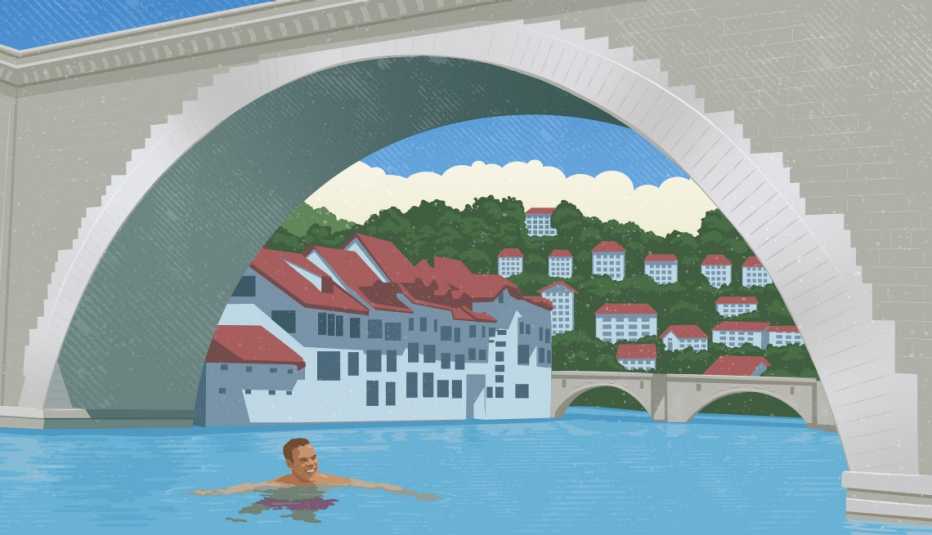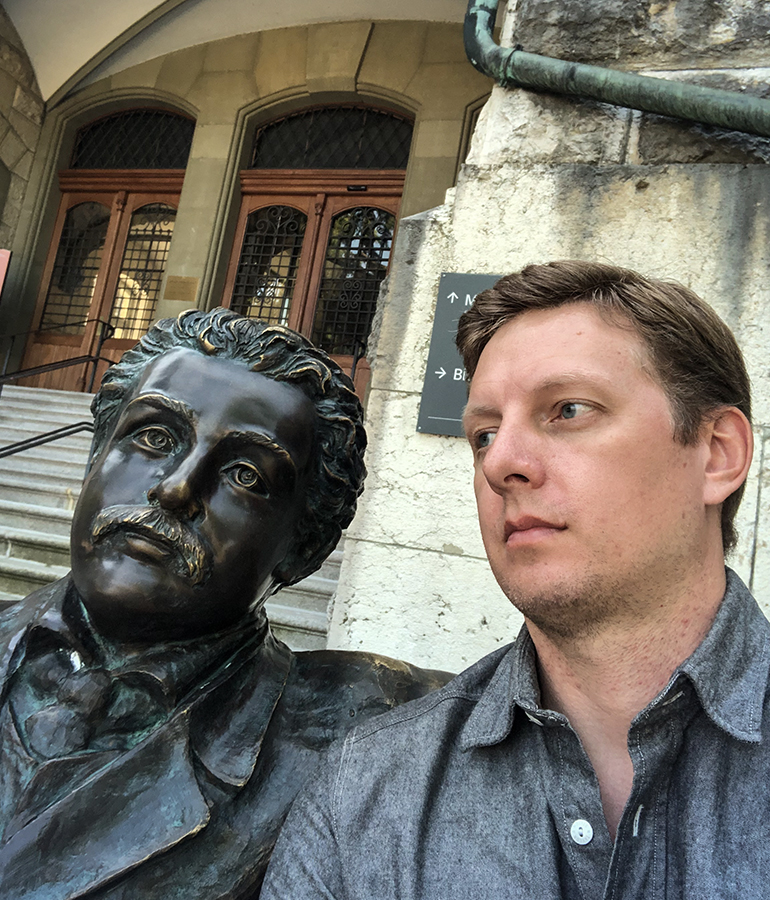Staying Fit


As happens with hectic travel plans, things rarely go as planned. But blunders can lead to opportunity — as long as you go with the flow.
I learned this lesson firsthand in the summer of 2019, when my fiancée (now wife) and I planned a whirlwind trip to Switzerland to visit colleagues and help old friends celebrate a wedding anniversary. We would hopscotch across the country by rail on the incomparable SBB, the Schweizerische Bundesbahnen. We’d start in Zurich, bounce up to St. Moritz, head over to Lucerne, then to Geneva, all in just four days.
Ambitious? Yes. But of all the countries to cram in a packed itinerary, Switzerland tops the list. The Swiss are precise, with everything running on time and according to plan, as did our trip — until the last leg, when I left my camera bag with my expensive DSLR on the first of our two late-night trains to Geneva. Worse, I had stashed my passport in that bag.
After I explained my mistake to a nice woman at the SBB’s lost and found in Geneva the next day, she responded cheerfully: “This is Switzerland. It’ll turn up.” Much to my chagrin, it did not, leaving me stressed out and stranded without an ID. So while my fiancée flew home from Geneva the next morning, I hopped aboard another train to Bern, Switzerland’s capital city, to acquire a temporary passport from the U.S. Embassy. There, as I stood in line, I struck up a conversation with a young Swiss-American guy behind me. I explained my situation and told him how annoyed I was about the prospect of waiting at least another day, maybe longer, for my temporary passport. Without hesitation, he told me what he’d do in my shoes: “I’d grab my swim trunks and head to the river. It doesn’t get any nicer here than today.”
After more than a day of wrangling with a perfectly competent but painstakingly unhelpful bureaucracy, I decided he was right. It was time to surrender, and just like that, the headaches went away.
Chillin’ in the river


I left the embassy, checked into a hotel, put on a shirt, swim trunks and flip-flops, and walked to the Aare River, which loops around the medieval city in a giant oxbow. Swimming, or just floating down the river, is popular in summer when the weather warms up. The city has constructed public access areas, making this lovely pastime easy for all.
Walking down the riverbank to the water was like making my way into a fairy-tale kingdom, with the steely-blue river flowing next to centuries-old stone walls. Locals were sunning themselves on grassy areas and a few teenagers were wading out to a sandbar. I stashed my shirt and flip flops in a nook and plunged in. The cool, glacial waters were shocking at first — exhilarating — and then they simply felt like a cool breeze on a hot day, welcoming. All the headaches of the past two days dissipated.
I swam out into the current and yielded to the flow, letting the river usher me downstream. Ancient buildings drifted by, as if they were moving, not me. From the bank, an occasional person waved cheerfully. I waved back. Before I knew it, I had washed past the access point where I’d planned to make my exit. It didn’t matter. I just drifted down to the next one, backstroked to where I could stand, then got out; the imposing bridge and building hovering overhead reminded me I was in the middle of a capital city.
Unsure about how to get back to my starting point, I wandered barefoot through the Old City. At first, I felt like a stereotypical boorish American, as my barefoot steps left paw prints on the cobblestones. But no one batted an eye.


































































You Might Also Like
Life’s a Journey: Hiking Away Decades of Self-Doubt
Terri Marshall’s pandemic pastime becomes an inspiration — for herself and for othersHeeding the Call of the Wild West
For a fashion-obsessed city girl, "all decked out" takes on new meaning amidst Wyoming's natural beauty
More Members Only Access
Watch documentaries and tutorials, take quizzes, read interviews and much more exclusively for members